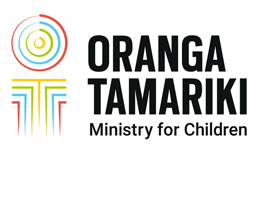After a Care or Protection Order has been made
If the Family Court makes a Care or Protection Order, the Oranga Tamariki social worker must give the court a report and a plan for the child. Oranga Tamariki regularly updates the plan. The people involved usually get a chance to tell the Family Court if they agree or don’t agree with the plan.
On this page:
- The care or protection plan
- Reviewing the care or protection plan
- Responding to a Care or Protection Order application
- Contact with Oranga Tamariki
Care or protection plan
The care or protection plan provided by Oranga Tamariki includes things like:
- what services and help will be given to the child
- the responsibilities of people like the parents, guardians and caregivers
- personal objectives for the child
- timeframes
- anything relevant to the wellbeing and best interests of the child and that helps keep them safe and well looked after.
Where there's no likely possibility of the child returning home, the plan would be different. See ss 130(2) and (3) Oranga Tamariki Act(external link)
Regular reviews of the care or protection plan
The Family Court will review the plan:
- at least every 6 months if the child is under 7 years
- at least every 12 months if the child is 7 years or older.
At each review, Oranga Tamariki will file an updated plan and a report that tells the Family Court what's happened since the last report and the plan for the next period.
The Family Court may ask for more information.
The Family Court usually gives the people involved a copy of the plan and any other documents filed at the review. The Family Court will tell you what you need to do if you agree with the plan or if you don’t agree with the plan. You don't need to pay any fees to do this.
Responding to a Care or Protection Order application
When Oranga Tamariki or the Police apply for a Care or ProtectionOorder, you have a chance to respond. If you don’t respond to the application, the judge can make an order without hearing what you think. You usually have 7 days to respond. The Family Court will tell you if you have less time.
If you decide to respond and argue against the application (called defending the application), you’ll need to fill in the forms, file them with the court and then serve them on (give them to) the other people involved in the court case, including the lawyer for the child.
It’s free to defend the application.
How to respond to the application
Note: When you print the forms it's important to print them single sided.
- Fill in one of these forms:
- if you're responding to an application for a Care or Protection Order, fill in Notice of defence - Form G12 [PDF, 58 KB]
- if you're telling the court you want to respond to an Interim Order, fill in Notice of intention to appear – G13 [PDF, 95 KB]
- You can also fill in a general affidavit if you want to give more detail: General affidavit [PDF, 198 KB]. You need to swear (or affirm) that what you say is true in front of a Justice of the Peace, a solicitor of the High Court or a court registrar.
Find out more about affidavits and statutory declarations - Include a New Zealand address on the forms if you want to be sent other documents relating to the case.
- File your application. It’s free of charge to do this.
Find out more about how to file documents - Serve your documents on (give them to) the other people involved, including the lawyer for the child.
Find out more about serving documents
Where to get help to respond to the application
If you need help to fill in the forms, you can:
- call us or visit your local Family Court
- talk to a lawyer. If you can’t afford a lawyer, you may be able to get legal aid or free community legal help.
Contact with Oranga Tamariki
It's important that you stay in touch with the social worker at Oranga Tamariki. When you get the application documents, look for the information sheet at the back, which will have the contact details for the social worker for your child’s case.
If the court has placed your child in the care of Oranga Tamariki, the social worker will talk with you about contact with your child while the case is going through the Family Court.

